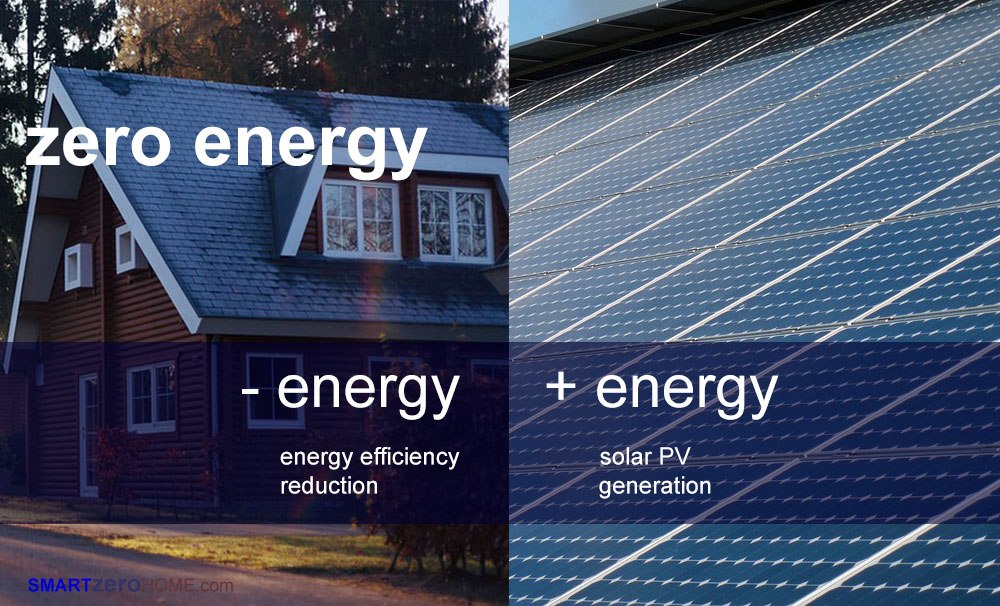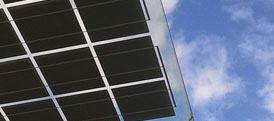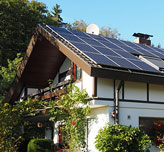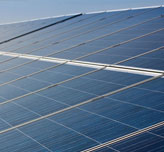SOLAR > ZERO ENERGY

Zero Energy Home : Solar + Efficiency
A Zero Energy home (also Zero Net Energy (ZNE) or Net Zero Energy (NZE) home), produces as much energy through on-site renewable energy (usually solar PV), as it consumes annually. The energy consumption is reduced through higher energy efficiency features resulting in a self-sustaining home consuming a net zero energy. A Zero Energy home is thus a super energy efficient home powered by a solar PV system. Currently PV is the norm as it is the most economical (in future other renewable sources such as small wind or fuel cells will be a possibility).
A Zero Energy Home produces as much energy as it consumes, in a year
Zero Energy meaning and definitions are driven by the end goal, and have been rapidly evolving - from "near ZNE" to "Site ZNE" and "Source ZNE" to the more recent "Zero TDV" (time dependent valuation).
The various definitions and interpretations are based on:
1) How the energy consumed and generated is factored (Site or Source),
2) Economics and the cost,
3) Societal value, factoring in peak consumption (TDV),
4) Environmental impact (Emissions)
Zero Net Energy Time Dependent Valuation (TDV) is the CEC (California Energy Commission) and CPUC (California Public Utilities Commission) preferred definition that will be used in California, in the future, and takes into account the peak hours consumption. The energy generated and energy efficiency measure savings are valued differently at different times to reflect the actual costs to users, to the utility system, and to society.
Zero Energy is Not Zero Electricty Bills
The above definitions do not target achieving zero bills. A zero energy home does not guarantee zero electric bills, as of now. This is important for the home owners, residents and buyers to understand.
California Zero Energy Legislation in 2020
In California, California Public Utilities Commission (CPUC) issued " Long Term Energy Efficiency Strategic Plan" aims to have all new residential buildings achieve ZNE status, by 2020. AB 212 (undergoing legislative approval process) requires California Energy Commission (CEC) to develop and adopt standards to achieve the CPUC's 2020 ZNE goal.








